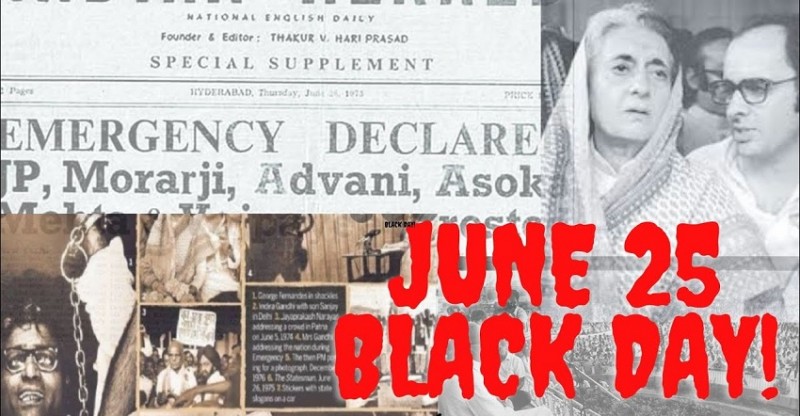
THIS DAY THAT YEAR: On the night of June 25, 1975, India was stunned as Prime Minister Indira Gandhi invoked Article 352 of the Constitution to impose a state of Emergency without warning, marking a critical juncture in the country's democratic history.
Indira Gandhi advised President Fakhruddin Ali Ahmed to declare a state of internal emergency, suspending civil liberties and imposing strict government control.
This was the third time India had declared a national emergency, the previous instances being during the wars with China in 1962 and Pakistan in 1971.
Gandhi had gained a massive electoral victory in 1971, bolstered by populist policies like bank nationalization and the abolition of the Privy Purse.
During her tenure, Gandhi centralized power, wielding significant control over the government despite economic challenges such as a reduced GDP, droughts, and oil crises.
A railway strike led by George Fernandes in 1974 was forcefully suppressed, reflecting growing dissent.
The government faced allegations of judicial interference, and Gandhi's election to the Lok Sabha was declared void by the Allahabad High Court due to electoral malpractice.
Janata Party leader Jayaprakash Narayan (JP) rallied against the government, advocating for "Sampoorna Kranti" (total revolution) and urging disobedience to unconstitutional orders by police and military personnel.
In response to mounting opposition, Gandhi declared the emergency, leading to the arrest of major opposition leaders and dissenting Congress members.
Civil liberties were severely restricted during the emergency, with strict censorship imposed on the press and widespread human rights violations reported.
Sanjay Gandhi, Indira's son, wielded controversial powers, implementing forced mass sterilization campaigns to control population growth.
The Emergency, often referred to as India's "darkest hour," lasted until March 21, 1977, when fresh elections were called amidst public discontent. Indira Gandhi's Congress party suffered a resounding defeat, paving the way for the Janata Party and Morarji Desai to form the new government, marking India's first non-Congress Prime Ministerial term.
This Day in History: The Black Hole of Calcutta, 1756, All You Need To Know
PM Modi's Top Quotes from Lok Sabha: Reflecting on Democracy and Governance
Cabinet Ministers Sworn In for 18th Lok Sabha, After Sworn-in of PM Modi